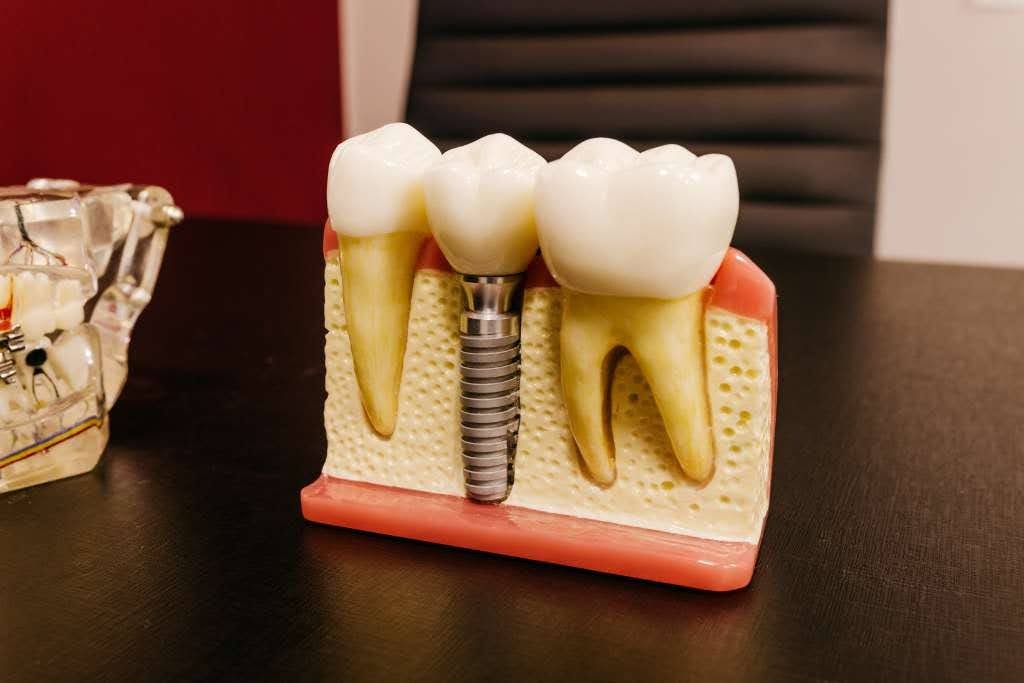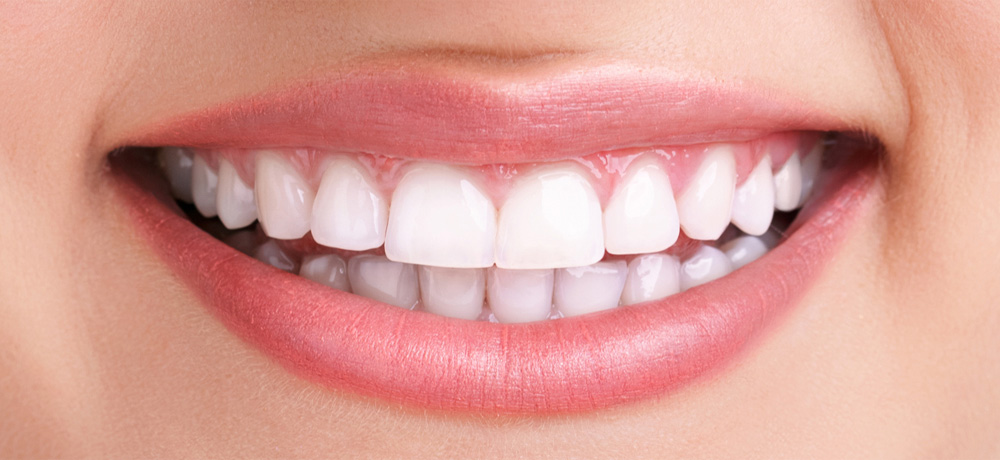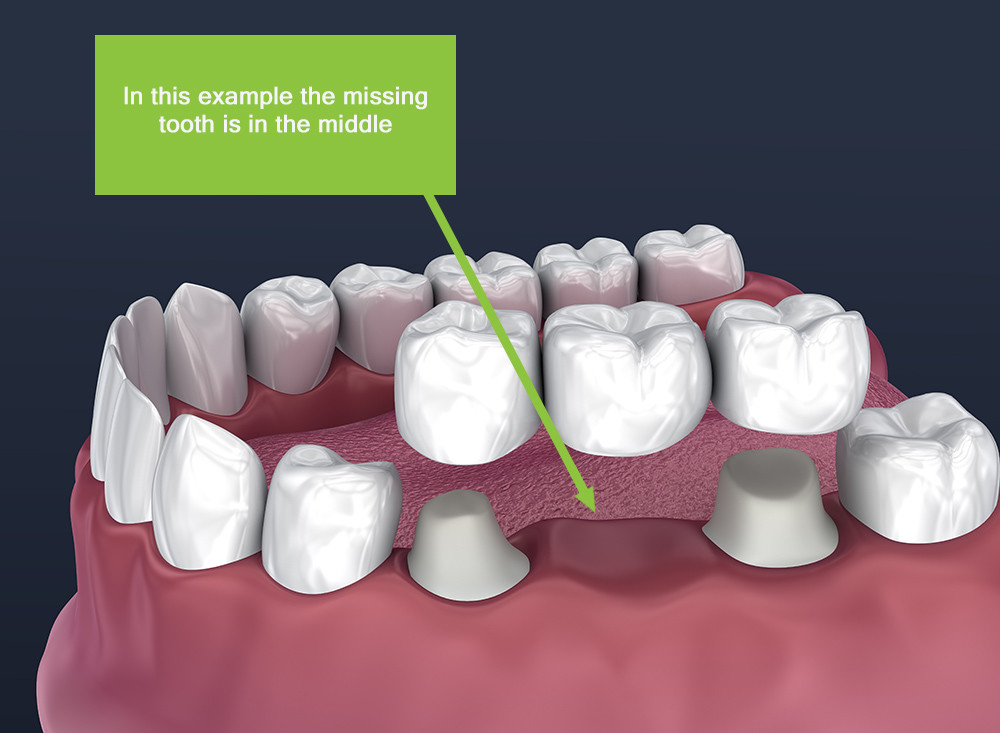Table of Contents
ToggleDental implants have changed how people restore missing teeth. They look and feel natural. Many patients pick them because the results last a long time and improve how they chew or smile. But getting a dental implant is not only about the final look.
Knowing how long it takes dental implants to heal is important. People want to plan their lives, work, and enjoy meals again. If you are thinking about dental implants, understanding the healing process helps reduce worry and set good goals. In this blog, we will skim through what to expect, how long each part of healing takes, and share ways to help your body recover.
Understanding the Dental Implant Healing Process
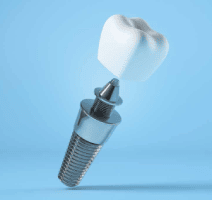
Initial Stage: Recovery After Surgery
Immediately after surgery, your body starts healing. Swelling and tenderness are almost universal. The gums might feel sore or puffy. There will usually be some bleeding at first. Bruises around the area may also be observed. This stage of recovery is usually the toughest, but it does not last long.
- How long does this last? Swelling goes down in about three to five days. Many people go back to their normal tasks within a week. Pain often fades each day.
- How to feel better Ice packs, gentle rinsing with salt water, and rest help. Your dentist may give you medicine to control pain and swelling. Follow the instructions carefully.
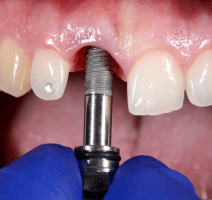
Osseointegration: Critical Healing Phase
- How long does this take? Osseointegration needs time. On average, it takes three to six months for most people. Some may heal faster or slower, depending on age, health, and bone strength.
- Why is this stage so important? If the bone does not join tightly with the implant, it can become loose. That is why this part of healing can not be rushed.
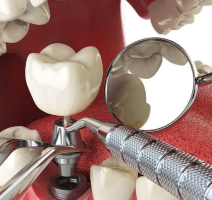
Final Stage: Restoration and Full Recovery
Once your jaw has healed and the implant is steady, you are close to the finish line. Your dentist will now place the last piece—a custom crown—on the implant post. This is the part of the tooth that shows in your smile.
- How long until it is finished? The total healing time, from surgery to final crown, usually takes about three to nine months. The exact time depends on your body and your dentist's plan.
- What marks the end of healing? You can chew, smile, and clean your new tooth as you would a real tooth. No pain, swelling, or sensitivity should remain.
Patience pays off. The result feels natural and looks like your own tooth.
Factors Affecting Dental Implant Healing Time

Patient Health and Habits
- Age: Healing from dental implants takes a bit longer as you get older, but age alone does not stop implants from working.
- Smoking: Smoking slows down healing and raises the risk of problems like infection or implant failure.
- Medical Conditions: Diabetes, autoimmune disorders, or low bone density can stretch the healing time.
- Medication: Some types of pills or treatments (like steroids) can slow bone growth or gum repair.
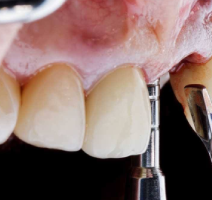
Role of Bone Grafting in the Healing Process
- Why is bone grafting done? If the jawbone is soft or thin, the implant will not have enough support.
- How does this change the timeline? Bone graft healing lasts about three to six months. Only when the bone is strong enough will the dentist place the implant. This can add a few months to your total recovery.
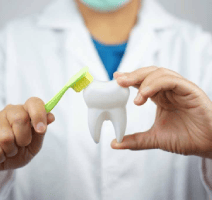
Oral Hygiene and Post-Operative Care
Good oral hygiene is important for healing and stopping infection.
- Brush and floss gently, but do not skip.
- Use any special mouth rinses your dentist suggests.
- Keep food away from the surgery site for at least a few days.
Dental Implant Recovery Tips

Managing Discomfort and Swelling
Pain or swelling after dental implant surgery is normal, but you can lower both.
- Apply an ice pack to the cheek every hour for ten to twenty minutes.
- Take pain medicine as your dentist tells you.
- Sleep with your head raised to lower swelling.
- Rinse with salt water—not too warm, not too cold.
- Avoid hard brushing near the implant.
Let your mouth rest and avoid poking the area with your tongue or fingers.

Nutrition and Lifestyle Recommendations
- Eat soft foods like soup, mashed potatoes, scrambled eggs, and yogurt.
- Stay away from tough, crunchy, or spicy foods for at least a week.
- Drink plenty of water. Avoid hot drinks alcohol, and pop.
- Do not use straws for the first few days. Sucking can disrupt healing.
- Rest enough and avoid heavy lifting. Let your body invest energy in healing.

When to Seek Professional Advice
- Heavy or bright red bleeding that will not stop.
- Swelling that gets worse after a few days.
- Strong pain that does not get better with medicine.
- Fever, chills, or gooey discharge from the gum.
- Loose implant or crown.
The Bottom Line
Healing after dental implants can take from three to nine months for most people. Each stage—immediate recovery, bone healing (osseointegration), and finally getting your new tooth—matters for a strong result. Many things can affect your timeline, including health, bone grafts, and how well you care for your mouth.
By working with your professional dentist, like Mayfield Dental, following advice, and being patient, you can enjoy a healthier, more confident smile for years to come. Your journey may take some time, but a little care and attention go a long way.

